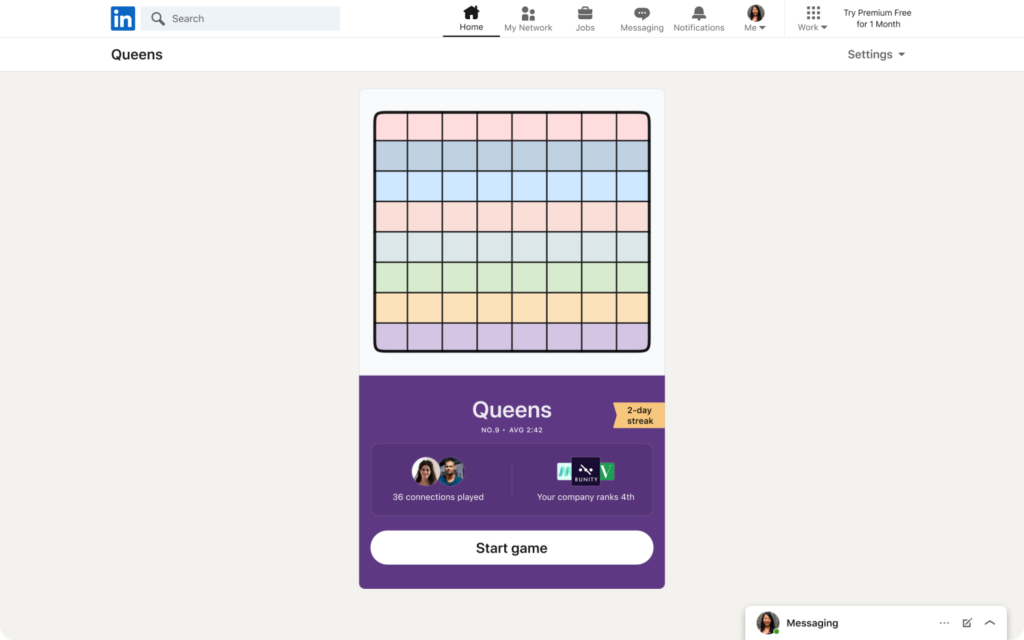LinkedIn Game: LinkedIn may soon allow you to compete in games against friends, colleagues, and even the office next door. The Microsoft-owned company is reportedly planning to add a new gaming experience to the platform.
According to TechCrunch, the experience is intended to tap into the same popularity as games like Wordle. Player’s scores will be sorted and ranked by workplace, allowing you to compete against other offices or even across the country. Nima Owji, an app researcher, posted photos of the gaming experience to Twitter/X on Saturday.
A LinkedIn representative told TechCrunch that, “It (Linkedin Game Team) is working on gaming, but said there is as yet no launch date.”
“We’re playing with adding puzzle-based games within the LinkedIn experience to unlock a bit of fun, deepen relationships, and hopefully spark the opportunity for conversations,” says the LinkedIn representative to TechCrunch. Moreover, The representative did not provide a release date for the gaming experience, but did state that the project had advanced beyond the images shared by Owji, which were not the most recent versions of the games.
The games are LinkedIn’s latest effort to expand and retain its audience, many of whom use the platform solely to look for work. The games are LinkedIn’s latest effort to expand and retain its audience, many of whom use the platform solely to look for work. Last year, the company integrated OpenAI’s GPT language models into the social network to help users improve their profiles and recruiters write better job descriptions for open positions.
Microsoft’s Influence & Gaming Dominance

LinkedIn’s owner Microsoft is a gaming Dominance. Its games business, which includes Xbox, Activision Blizzard, and ZeniMax, generated $7.1 billion in revenue last quarter, surpassing Windows revenues for the first time. The LinkedIn spokesperson declines to the comment on how or if Microsoft is involvement in LinkedIn’s gaming project.
Games are consistently among the most popular apps for mobile phones and PCs, both in terms of revenue and engagement, with puzzle-based casual games being one of the most popular categories among mobile users.

Non-gaming platforms have long used these facts to increase their traffic — arguably a trend that predates the internet, given the popularity of crosswords and other puzzles in newspapers and magazines.
Also Read: WhatsApp Users Will Soon Be Able To Pin Multiple Messages In Chats
However, not all non-game platforms have had success with their gaming ventures. In 2022, Facebook, the largest social network globally and a major proponent of social gaming, discontinued its standalone gaming app due to dwindling usage. Conversely, Google, which ceased Stadia operations last year, has rekindled its interest in gaming by launching casual games on its video-streaming platform, YouTube Playable.
Thank You for Reading!
